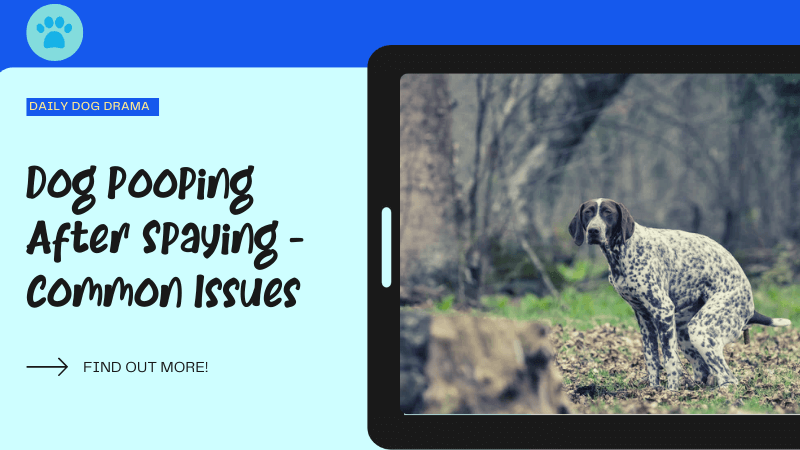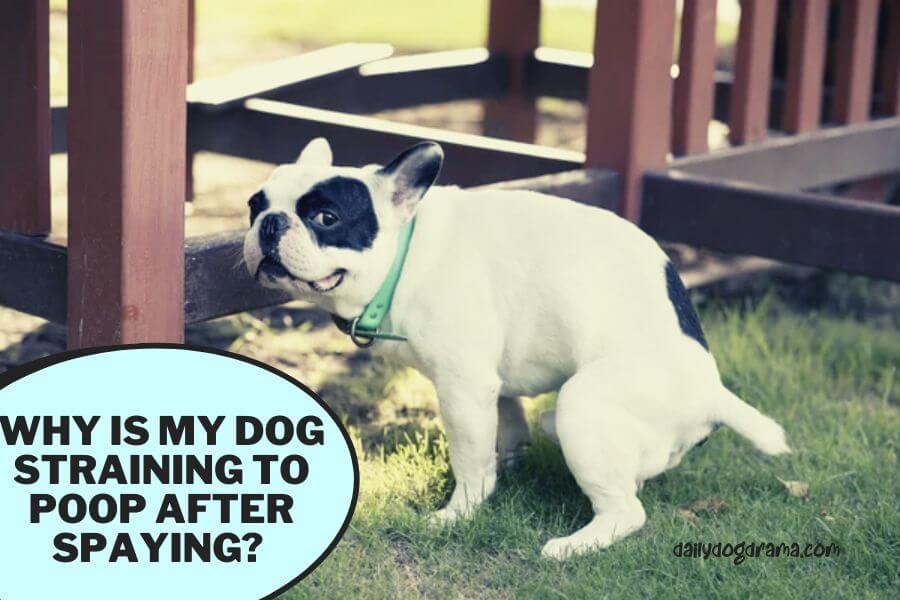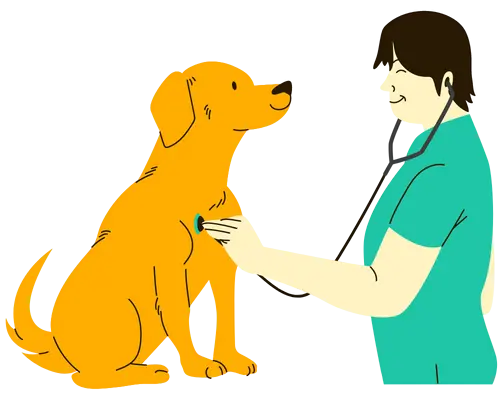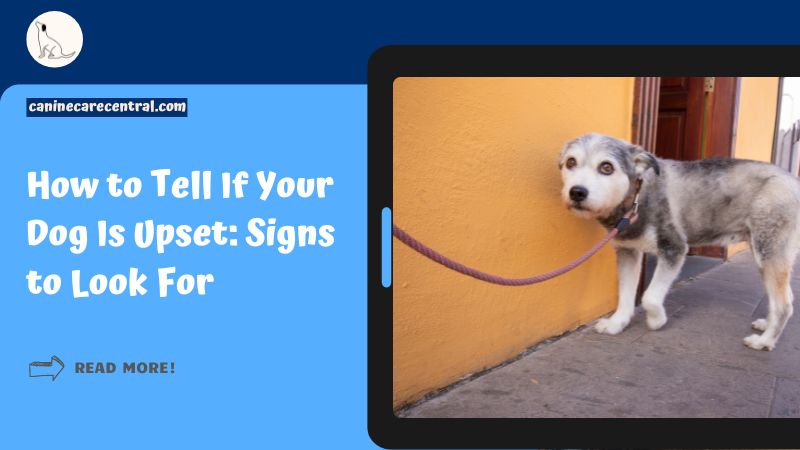Do you know what DOG ESSENTIALS you are missing out? Find out now!
Zack Keithy, our author, is a certified veterinarian technician (UC Blue Ash) for over 6 years (contact him here). The articles written here are based on his expertise and experience, combined with a review by our expert vet reviewers including Dr M. Tarantino. Learn more about us here.
If you’ve recently had your dog spayed and are now that it is having difficulties pooping, you’re probably feeling frustrated and confused.
You want to make sure your furry friend is healthy and happy, but you’re not sure why this is happening.
It’s normal to feel concerned and want answers, but don’t worry – you’re not alone.
In this article, we’ll discuss the reasons behind this common issue and provide some helpful tips on how to manage it.
By the end, you’ll have a better understanding of what’s going on and how to support your pup during this time.
Medical Questions? Talk to a Veterinarian 24/7.
Connect one-on-one with a licensed vet who will answer your questions in minutes.
*Article may contain affiliate links to retailers like Amazon and Chewy. Learn more on our disclosure page.

- Do Dogs Have Trouble Pooping After Surgery?
- How Do I Get My Dog to Poop After Being Spayed?
- Why Does My Dog Poop in the House After Spaying?
- How Do You Know if Something is Wrong After Spaying?
- How Long Does It Take for a Dog to Get Back to Normal After Being Spayed?
- Frequently Asked Questions (FAQs)
- In Conclusion: Dog Pooping After Spaying
Do Dogs Have Trouble Pooping After Surgery?
Yes, dogs often struggle with pooping after surgery and can take up to 4 days for regular bowel movements to return.
Your dog’s body reacts to surgery just as your own body would. Surgical procedures may be necessary, but they are not natural and thus your body often will react with pain and discomfort.
Many other surgery-related factors disrupt your dog’s bowel movements.
Your dog may have trouble pooping after surgery due to fasting before surgery, certain pain medications as well as not eating or drinking properly after surgery.
On the other hand, what does it mean when your dog poops twice in a row?
Do dogs get constipated after spaying?
Yes, the anesthetic used may cause your dog to become constipated for a few days after being spayed.
The stress of the surgery can also contribute to your dog’s constipation.
Some factors that can directly contribute to constipation in dogs include changes in diet, lack of exercise, and certain medical conditions.
Why is my dog straining to poop after spaying?

It is normal for your dog not to poop for a few days after surgery due to the effects of the surgery on the gastrointestinal tract.
Straining while pooping is most likely a sign of constipation in your dog.
Besides that, one possibility is that the surgery itself may have caused some temporary irritation or swelling in the digestive tract, leading to discomfort when passing stool.
Another potential cause could be due to changes in your dog’s diet or routine leading to the surgery, which can cause constipation.
It is also possible that the dog is experiencing an underlying medical condition, such as a bowel obstruction or inflammation of the colon, which can cause straining to poop.
It is important to consult with your veterinarian if this persists for more than 3 or 4 days.
Doggy says, you might be interested in this too: Dog Keeps Ringing The Bell to Go Outside? Stop the Madness!
How long after being spayed should a dog poop?
Your dog’s regular bowel movements should return three to four days after being spayed.
If your dog is still not able to poop seven days after surgery, you should contact your vet.
Hey there, sorry to interrupt but I wanted to tell you about an online vet service I’ve been using for years.
An in-person visit with one is great, but it’s not always an option.
Now, thanks to technology, you can speak to one without leaving your home.

Got something to ask a vet?
Talk to one anytime, 24/7.
* Don’t use this service for emergencies.
Alternatively, a vet can come out to you instead (exclusive to our readers: use THEVETS15 for 15% off).
SCHEDULE AN APPOINTMENT HEREThank you. The rest of the article continues below.
How Do I Get My Dog to Poop After Being Spayed?
Constipation can happen to all dogs, not just the ones that had surgery.
It is important to ensure that your dog gets enough fiber so that its bowel movements are regular.
You can add a stool softener such as Metamucil to their food, as this will help soften your dog’s stool, allowing for defecation to be easier and thus relieving constipation.
Feeding your dog canned pumpkin or administering laxatives may help relieve constipation and discomfort.
You can also try softening your dog’s food with hot water to make it more palatable and digestible.
If your dog is still not pooing after 4 days, this is concerning and you should take her to your vet.
Why Does My Dog Poop in the House After Spaying?
Your dog may release in the house or even poop on the wall after being spayed due to several reasons.
One possibility is that the surgery itself may have caused some temporary changes in the dog’s behavior, such as increased anxiety or confusion, leading to accidents in the house.
The anesthetic may have affected your dog’s bowel control temporarily, which adds to the stress of the surgery, causing it to lose control and end up emptying inside the house.
In some cases, your dog’s bowels and bladders may temporarily be swelling, which adds pressure on these organs. This makes it harder for them to hold it in!
This is why it is actually quite common for dogs to pee in the house after spaying.
The bottom line here is, you might want to consider potty training your dog again after it recovers.
How Do You Know if Something is Wrong After Spaying?
There are signs that you should look out for following a surgical procedure that may indicate that something is wrong.
If your dog has a loss of appetite, pain lasting longer than a week, incision site complications, vomiting, or diarrhea, something is wrong and you should contact your vet.
Surgical site complications include redness, pus, swelling, removal of stitches, bleeding, and infection in the area.
Other observable signs include walking funny, excessive scratching, and sensitivity to touch at the site of surgery.
How Long Does It Take for a Dog to Get Back to Normal After Being Spayed?
It takes at least two weeks for your dog to return to normal and three to four days for bowel movements to return after being spayed.
Not all dogs are the same and some will take longer than others to heal and return to normal after being spayed.
You can aid in the healing process by keeping your dog calm, well fed, well hydrated, and by limiting activity.
It is also essential that you clean and take care of the surgical site during healing and make sure that your dog does not lick the area.
A cone is a must!
Frequently Asked Questions (FAQs)
Why does my dog strain to poop but nothing comes out?
Your dog may be constipated or have a poor fiber diet. It is normal for your dog to not poop for three to four days after surgery but if it persists longer than that, you should take her to the vet as it is indicative of pain, discomfort, or a complication to the surgery.
Do dogs urinate more after being spayed?
Yes, dogs do urinate more after being spayed. After a surgical procedure, it is recommended to keep your dog’s fluid intake up and thus your dog will urinate more. Dogs that have been spayed may urinate more frequently due to the changes in hormonal levels caused by the removal of their female reproductive organs.
Is it normal for a dog not to poop after being spayed?
Yes, it is normal for your dog not to poop for three to four days after surgery. Your dog’s delayed bowel movements are normal and are most likely due to the effect of the anesthetic on your dog, fasting before surgery, nausea, and stress.
In Conclusion: Dog Pooping After Spaying
It is quite normal for a dog’s bowel movements to be slightly irregular immediately after being spayed, so rest easy for now!
Most dogs will resume their normal bowel habits within a few days to a week after the surgery.
However, if your dog is experiencing prolonged constipation, straining to poop, or accidents in the house, it is important to consult with your veterinarian for further evaluation and treatment.
Check out other dog behavior articles on our site such as why is my puppy walking funny, why won’t my dog move with cone on, why do dogs lick their lips when you pet them, and many more!
You’ve made it to the end, but I hope it’s not the end of our journey. We want to hear your voice! Share your thoughts, problems, suggestions, or anything related to your dog in the comments section. And don’t forget to join our newsletter today too.



